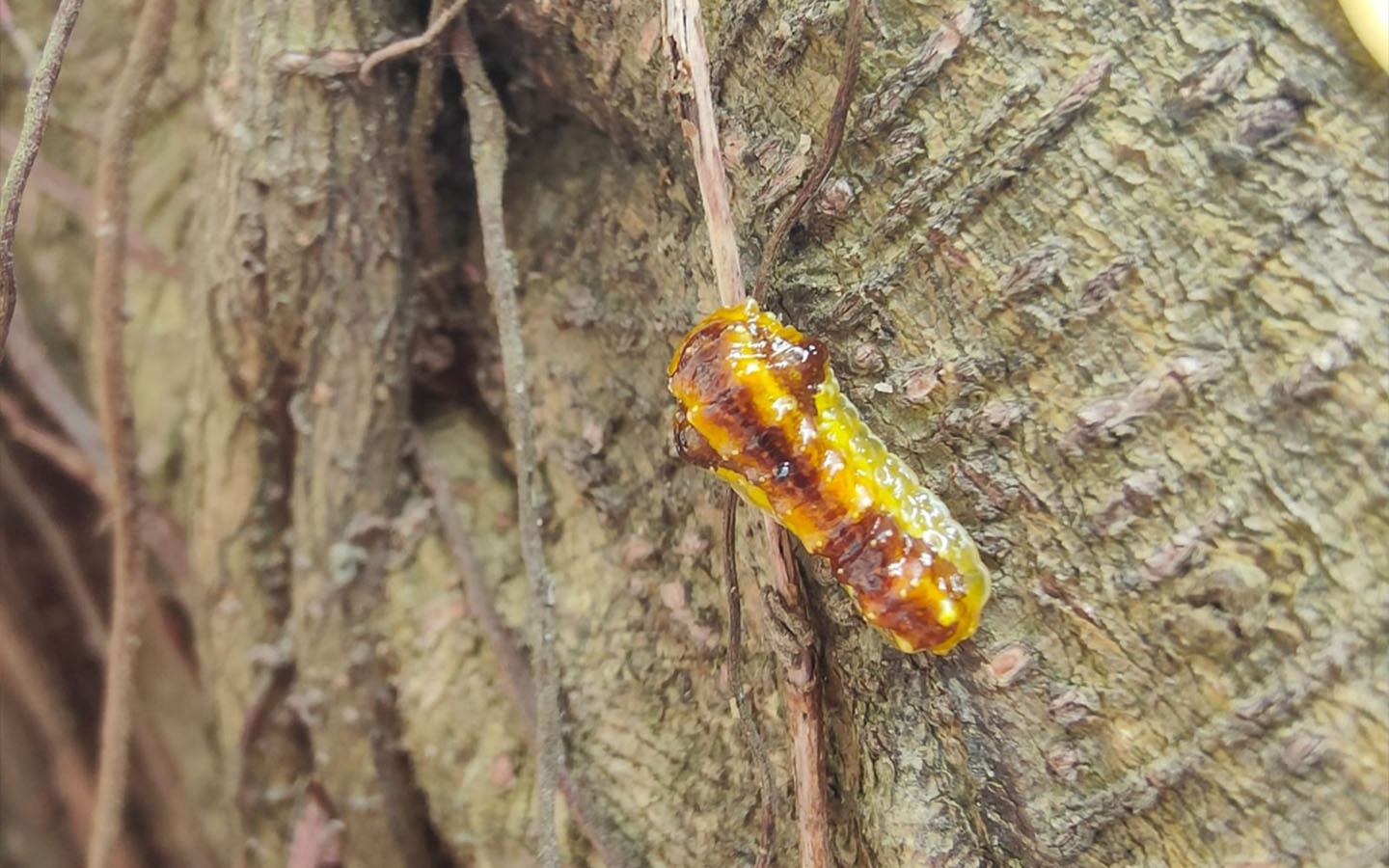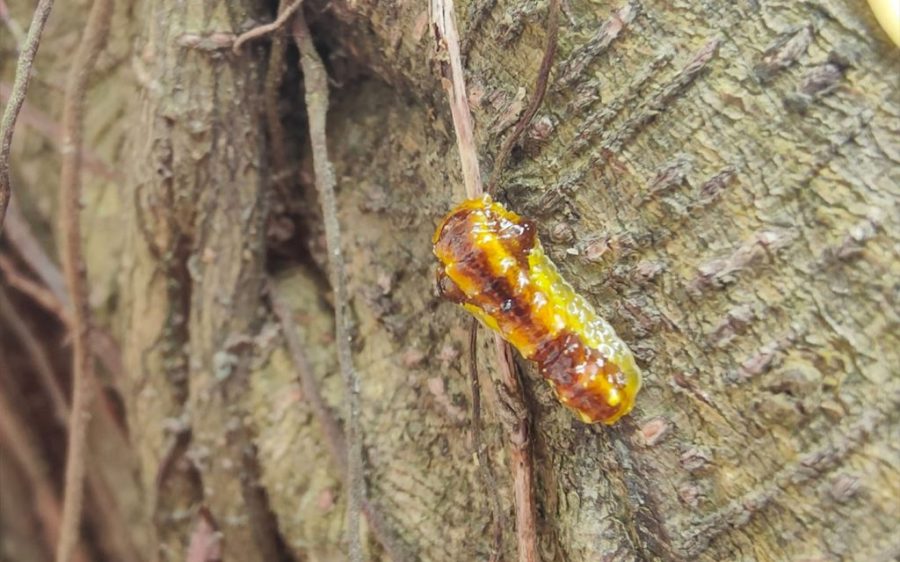A pest infestation affecting Macao’s precious banyan trees in several districts has flared up again, according to the Municipal Affairs Bureau (known by its Portuguese initials IAM).
The pest, a moth known as Phauda flammans, can cause the complete defoliation of banyans – which its caterpillars feed on voraciously – as well as damage the trees’ structure. The moths have been appearing seasonally in Macao, which already battled an infestation over the summer.
Populations can grow exponentially. One tree preservation company warns that a hundred insects can “soon become 10,000 and then millions after a few [breeding] cycles. Tree protection is critical.”
[See more: The government has put 12 more old trees on the protection list]
Phauda flammans moths were rare in the region until 2019. One expert told Hong Kong public broadcaster RTHK that hotter temperatures were favouring the insects’ breeding cycles, suggesting that climate change may be playing a role. The pests have infected thousands of trees in Hong Kong, including the famous “Wishing Tree” – a popular tourist attraction in the northern part of the territory.
According to a Macao government statement, teams from the IAM will carry out prevention and pest control work in the coming weeks. The work will be carried out in the area surrounding Sai Van Lake Square, and on Avenida da Praia Grande, Avenida dos Jardins do Oceano, Avenida dos Jogos da Ásia Oriental, and Avenida do Aeroporto, among other locations.
Members of the public are urged to contact the IAM on 2833 7676 if they find any abnormalities in trees.






